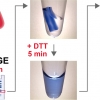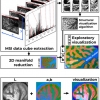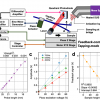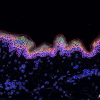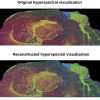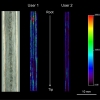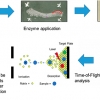News
Mass Spectrometry News
Mass spectrometry can be used to identify Parkinson’s based on compounds found on the surface of skin. The findings offer hope that a pioneering new test could be developed to diagnose the degenerative condition through a simple skin swab.
A novel gel electrophoresis technique has reduced the time for the sample pretreatment of trace marker proteins derived from clinical samples from around 20 to 5 hours.
Scientists from the Skolkovo Institute of Science and Technology (Skoltech) have proposed a mass spectrometry imaging (MSI) method making use of the unique features of human vision.
Kanazawa University scientists have used computer simulations of charged molecules to help improve the accuracy of mass spectrometers. By understanding the collisions between ions that reduce excess charges, this work may lead to more sensitive radiocarbon dating and medical testing.
A research project at the Institute for Global Food Security, Queen’s University Belfast is to use mass spectrometry to tackle bovine mastitis and reduce the use of broad-spectrum antibiotics on dairy farms.
With forest fires becoming increasingly prevalent and severe due to climate change, a detailed understanding of the composition of their smoke is important.
Researchers from Osaka University have developed a new MSI method for brain tissue analysis in high spatial resolution that requires no sample preparation.
Multimodal imaging is being used by scientists to study skin ageing through the interaction of metabolism, cellular communication and cellular quality control in skin ageing accelerated by environmental stress.
A new computational mass spectrometry imaging method enables researchers to achieve high mass resolution and high spatial resolution for biological samples while providing data sets significantly faster.
The British Mass Spectrometry Society, in partnership with the Chromatographic Society, offer summer studentships: deadline 15 January 2021.
The European Pharmacopoeia Commission has adopted a new general chapter on the analysis of N-nitrosamine impurities in active substances by GC-MS, LC-MS/MS and GC-MS/MS.
A multi-reflection time-of-flight mass spectrometer has been used successfully to investigate atomic clusters at the University of Greifswald.
This review discusses three emerging applications in MSI—clinical, pre-clinical and forensics—and the roadblocks to the expansion of the use of MSI in these areas.
Mass spectrometry, XRF and NIR spectroscopy are being used together with voltammetry to determine the origin of ancient ceramic fragments.
Shimadzu opened a branch office in Denmark in September, providing local support.
University of South Australia scientists have used mass spectrometry imaging to identify signs of osteoarthritis.
Researchers have used GC-MS to identify key aroma compounds in dog food that seem to be the most appealing to canines.
This proteomics approach enables the identification of small molecule drug targets in complex proteomes and the analysis of their binding properties across species and drug target classes.
Intabio has signed a co-marketing agreement with Agilent Technologies to support development of an integrated iCIEF-MS assay.


